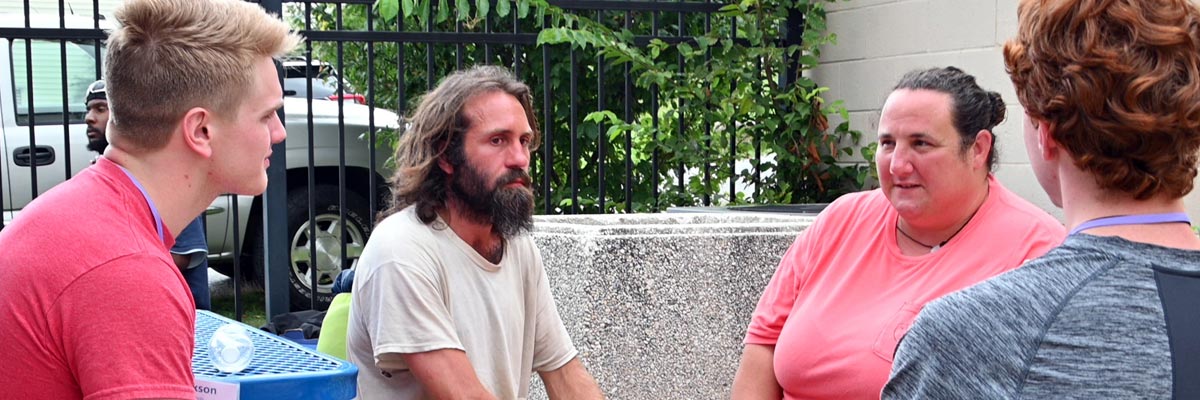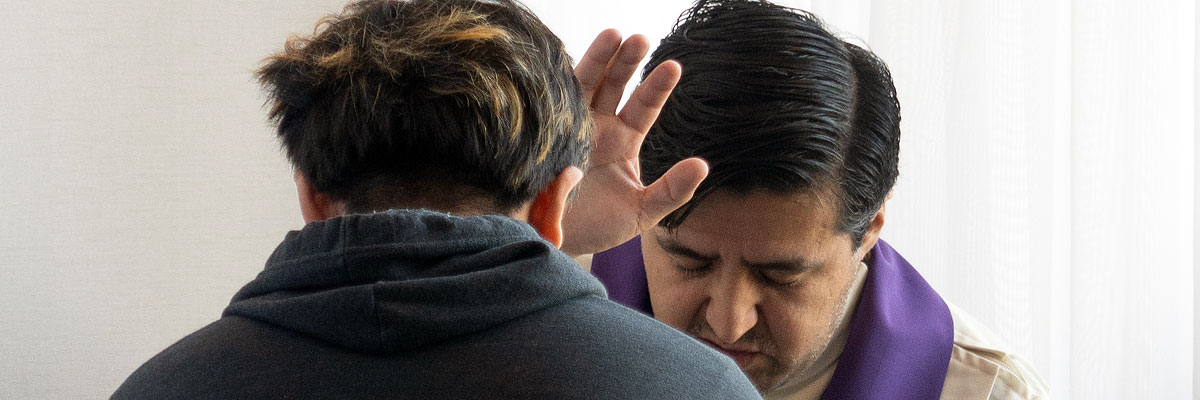Official Website of the
Catholic Diocese of Little Rock
White Mass 2015
Published: October 30, 2015
Bishop Anthony B. Taylor preached the following homily at the Cathedral of St. Andrew in Little Rock on Friday, Oct. 30, 2015.

Bishop Taylor
We are gathered today for our annual White Mass for doctors, nurses and other health care professionals — including dietary staff, lab workers and even those who do housekeeping at hospitals. This White Mass takes its name from the traditional white coats of physicians and is traditionally celebrated on Oct. 18, the feast of St. Luke, who was himself a physician and is the patron saint of physicians.
But I wasn’t available that day, so I am grateful to you for accommodating my schedule because I very much wanted to be with you in this Mass, both to pray for you and to thank you for the vital service you provide to all of us.
And look how the Lord provides! Our Gospel today contains one of Jesus’ cures, thereby reminding us that he is the great physician, not St. Luke or any of us! He is the one who cures; the most we do is collaborate with him. And notice that there is a great deal of controversy surrounding Jesus’ work of healing people ... which perhaps should not surprise us, since there is plenty of controversy in health care even today!
Patients tell you secrets that only their confessor knows and which you receive with healing compassion.
In Jesus’ case the controversy revolved around the fact that he would heal people any day of the week, even on the Sabbath when no one was supposed to work. In this respect, today’s cure of a man with dropsy resembles earlier Sabbath healings of a man with a withered hand and of a woman who was bent over and couldn’t stand up straight. And what was the problem with him doing this?
Well, the religious authorities agreed that you could cure a person on the Sabbath if he was in danger of death, but only then ... otherwise you must wait until the following day ... and so dropsy, withered hands and curvature of the spine do not qualify for a Sabbath cure. But at the same time, some of these same religious authorities took a much more lenient approach in a parallel case which Jesus brings to their attention, namely when an animal falls into a well on the Sabbath.
So they are rigorous when it comes to someone else’s health but lenient when their own interests were at stake, for instance when they themselves might suffer even a merely material loss. And I might add, not even a genuine material loss since in this particular case, if the animal does die, they can still have it for dinner! The point?
For Jesus the law is intended to be an aid on the path to personal holiness, communion with God and the promotion of human dignity and well-being. It is not intended to be a legal means of oppressing others. And since healing on the Sabbath promoted the well-being of those cured, the usual Sabbath restrictions had to be set aside.
So what does this mean for you in the medical profession? Well obviously, the need to put the human person at the center of everything you do. Medicine may be in some respects a science (University of Arkansas for Medical Sciences) but it is also every bit as much an art (Medical Arts) and a participation in the work of God in bringing healing to the sick and injured.
Therefore, health care and personal holiness are linked! You journey with patients in their times of greatest fear and vulnerability, which should humble you and deepen your sense of dependence on — and communion with — God. Patients tell you secrets that only their confessor knows and which you receive with healing compassion. They allow you access to parts of their body off limits to everyone except their spouses and sometimes not even them, trusting you to bring healing in a way that leaves their dignity intact.
In school you gain scientific knowledge, learn skills and techniques, as well as all the rules and regulations of practicing medicine in the United States ... but that’s not what makes you a doctor or a nurse or any other kind of health care professional. That’s the medical equivalent of the Sabbath, the law which you need to know and generally observe, but which is at the service of a higher law: the promotion of human well-being. Like with Jesus’ adversaries in today’s Gospel, we too can be tempted to be lenient when it comes to our own interests and rigorous when it comes to the needs of someone else.









